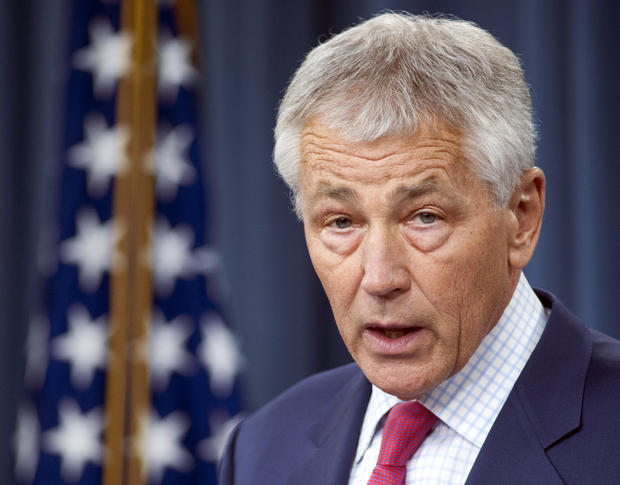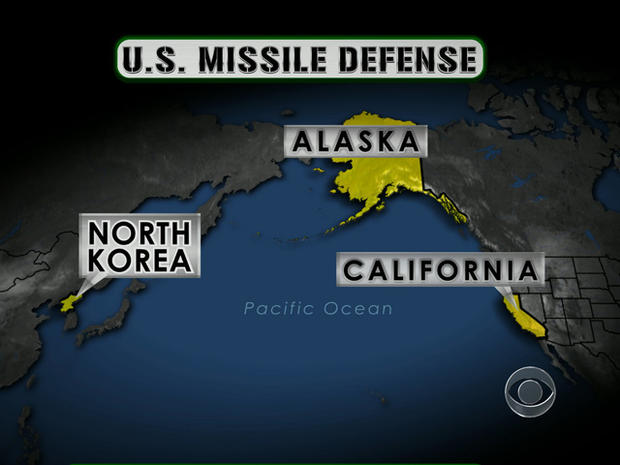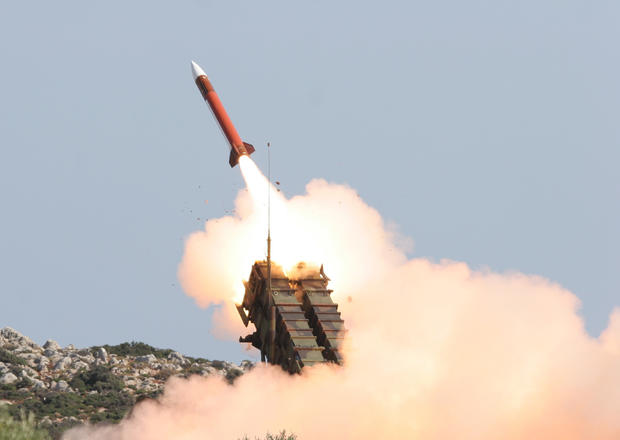U.S. ramping up missile defense to meet North Korea threat
WASHINGTON The Pentagon announced Friday it will spend $1 billion to add 14 interceptors to a West Coast-based missile defense system, responding to what it called faster-than-anticipated North Korean progress on nuclear weapons and missiles.
Citing a "series of irresponsible and reckless provocations" by Pyongyang, Defense Secretary Chuck Hagel said he is determined to ensure protection of the U.S. homeland and stay ahead of the North Korean missile threat.
"We will strengthen our homeland defense, maintain our commitment to our allies and partners, and make clear to the world that the United States stands firm against aggression," Hagel told a Pentagon news conference.
The Pentagon intends to add the 14 interceptors to 26 already in place at Fort Greely, Alaska. That will expand the system's ability to shoot down long-range missiles in flight before they could reach U.S. territory. In addition to those at Greely, the U.S. also has four missile interceptors at Vandenberg Air Force Base, Calif.
James Miller, the undersecretary of defense for policy, said the project would cost about $1 billion. CBS News correspondent David Martin reported that how much added security that will buy is subject to debate, since the interceptors have an uneven test record.
"The reason we're advancing our program here for homeland security is to not take any chances, is to stay ahead of the threat and to assure any contingency," Hagel said.
Martin also reported that U.S. intelligence does not believe North Korea yet has a nuclear-armed missile capable of reaching the U.S. But a photo of a mobile intercontinental ballistic missile in a military parade last year heightened concerns they are working hard to develop one.
- North Korea reportedly nullifies armistice
- Koreas' rhetoric no match for surreal calm at DMZ
- Unpredictable North Korea poses serious threat, U.S. officials say
Former Defense Secretary Robert Gates once said North Korea could have an ICBM (intercontinental ballistic missile) by 2016, added Martin, but the extra interceptor missiles to shoot it down won't all be in place until 2017.
Miller and Hagel said the U.S. will conduct environmental studies on three additional potential locations for interceptors in the United States, including on the East Coast, as required by Congress. Hagel said no decision on a particular site has been made, but the studies would shorten the timeline should a decision be made.
Miller said that would provide options for building an interceptor base on the East Coast or adding more interceptors in Alaska, should either approach become necessary due to further future increases in the threat from Iran and North Korea.
The threat of a missile strike from North Korea was the rationale for building the missile defense sites in Alaska and California during the administration of President George W. Bush. Technical difficulties with the interceptors slowed the pace at which they were installed at Greely and Vandenberg.
"Our policy is to stay ahead of the threat — and to continue to ensure that we are ahead of any potential future Iranian or North Korean ICBM capability," Miller said in a speech Tuesday at the Atlantic Council.
Miller noted that last December, North Korea launched a satellite into space, demonstrating its mastery of some of the same technologies required for development of an intercontinental ballistic missile.
"Our concern about Pyongyang's potential ICBM capability is compounded by the regime's focus on developing nuclear weapons," he said. "North Korea's third nuclear test last month is obviously a serious concern for all nations."
North Korea recently threatened to reduce Seoul to a "sea of fire" and stage pre-emptive nuclear attacks on Washington.
"North Korea's shrill public pronouncements underscore the need for the U.S. to continue to take prudent steps to defeat any future North Korean ICBM," Miller said in his speech Tuesday.


